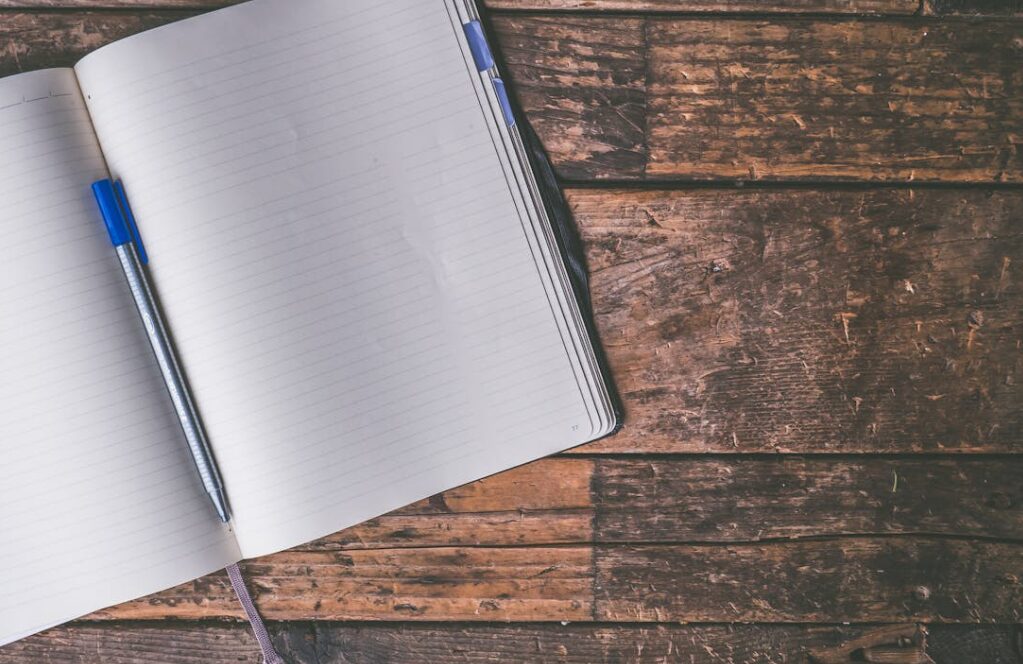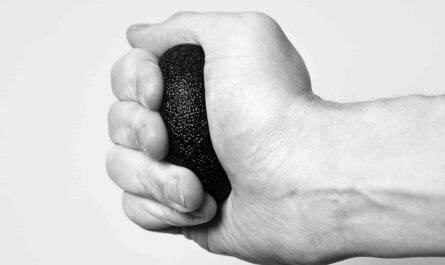Our bodies communicate with us constantly through subtle signals—feelings of hunger, fatigue, tension, or vitality—that, if properly understood, can guide us toward better health and overall well-being. However, in our fast-paced lives, it’s easy to overlook these messages. One powerful tool for reconnecting with your body and understanding its unique needs is journaling. By putting pen to paper, you create a personal dialogue that allows you to track patterns, process emotions, and ultimately appreciate the wisdom your body has to offer.
In this comprehensive guide, we’ll explore how journaling can help you understand and appreciate your body’s signals. We’ll discuss the benefits of reflective writing, offer practical tips and strategies for effective journaling, and examine how this practice can lead to improved health, mental clarity, and a deeper connection with yourself.
1. The Power of Journaling
A. What Is Journaling?
Journaling is the practice of regularly writing down your thoughts, feelings, and experiences. It is a versatile tool that can be used for self-reflection, stress management, and personal growth. When applied to understanding your body’s needs, journaling transforms into a detailed log of physical sensations, emotions, and daily habits, allowing you to identify patterns and insights over time.
B. The Benefits of Journaling for Body Awareness
- Enhanced Self-Awareness:
Journaling encourages you to reflect on your physical and emotional state. By recording how you feel each day, you begin to notice patterns—what you eat, how much sleep you get, your stress levels, and your energy throughout the day. This awareness is the first step in understanding your body’s unique needs. - Emotional Processing:
Often, the signals from our bodies are intertwined with our emotions. Journaling helps you process feelings such as anxiety, frustration, or joy, and can reveal how these emotions impact your physical health. Understanding this connection can guide you toward making changes that benefit both your mind and body. - Identifying Patterns and Triggers:
A detailed journal can help you spot trends that affect your well-being. For instance, you may notice that you feel particularly tired after skipping breakfast or that stress leads to muscle tension. Recognizing these patterns allows you to make informed decisions to support your health. - Empowerment and Self-Compassion:
By documenting your journey and acknowledging your body’s signals, you foster a sense of empowerment. Journaling helps you embrace your body’s needs and appreciate its strengths, promoting self-compassion and a positive self-image. - Goal Setting and Progress Tracking:
Whether you’re aiming to improve your fitness, manage stress, or develop healthier eating habits, journaling provides a record of your progress. It enables you to set realistic goals, track your achievements, and adjust your strategies based on your body’s responses.
2. How Journaling Enhances Body Understanding
A. Recognizing Physical Signals
Our bodies send us a constant stream of signals—some obvious and others subtle. Journaling helps you decode these signals by encouraging you to pay attention to details such as:
- Hunger and Satiety: Tracking your meals and noting when you feel hungry or full can reveal your natural eating patterns. Over time, you may discover that you crave certain foods at specific times or that your body responds differently to various diets.
- Energy Levels: Recording your energy levels throughout the day helps you identify when you’re most productive or when you tend to feel sluggish. This can inform your scheduling for exercise, work, or relaxation.
- Physical Discomfort: Whether it’s headaches, muscle tension, or digestive issues, documenting any discomfort can help you pinpoint triggers, such as stress, dehydration, or dietary choices.
- Sleep Quality: A sleep log that notes how long and how well you sleep can reveal the impact of daily habits on your rest and recovery.
By regularly noting these physical experiences, you build a comprehensive picture of your body’s rhythms and needs, enabling you to make choices that support your well-being.
B. Uncovering the Mind-Body Connection
Emotions and physical health are deeply intertwined. Journaling allows you to explore this connection by reflecting on how your mood and mental state affect your physical sensations.
- Stress and Tension: Writing about stressful experiences can help you notice the physical manifestations of stress, such as tight shoulders or a pounding heart. Understanding this link may encourage you to adopt stress management techniques like mindfulness or yoga.
- Joy and Vitality: On the flip side, documenting moments of happiness and satisfaction can help you see how positive emotions contribute to a sense of vitality and overall health.
- Emotional Eating: Many people turn to food for comfort during times of emotional distress. Journaling about your emotional states and eating habits can reveal whether you’re using food as a coping mechanism, and help you develop healthier alternatives.
This reflective process deepens your understanding of how your emotions influence your physical state, allowing you to develop a more holistic approach to health.
3. Getting Started: Practical Tips for Effective Journaling
A. Choose the Right Medium
Journaling can be done in various ways—handwritten journals, digital apps, or even voice recordings. The best medium is the one that feels most natural to you and that you’ll be most consistent with.
- Traditional Journals: Handwriting your thoughts can have a meditative effect and help you feel more connected to your emotions.
- Digital Apps: If you prefer technology, apps like Day One or Journey offer features such as prompts, mood tracking, and the ability to attach photos.
- Voice Journaling: For those who find speaking easier than writing, recording your thoughts can be a useful alternative. You can transcribe these recordings later if needed.
B. Set a Regular Routine
Consistency is key to effective journaling. Establish a routine that allows you to reflect on your day without feeling rushed.
- Morning Reflection: Start your day by jotting down your expectations, goals, or how you’re feeling as you wake up. This sets a positive tone for the day.
- Evening Journaling: End your day by reflecting on your experiences—how you felt physically and emotionally, any significant events, and insights about your body’s needs.
- Regular Check-Ins: Even if you don’t have time for a full entry, consider writing a quick note on particularly significant moments throughout the day.
C. Use Prompts to Guide Your Writing
If you’re new to journaling, prompts can help you get started. Here are some prompts specifically focused on body awareness and self-care:
- “What physical sensations did I notice today, and what might they be telling me?”
- “How did my body feel during different parts of the day? Were there moments of tension or relaxation?”
- “What did I eat today, and how did it make me feel both physically and emotionally?”
- “Describe a moment when you felt particularly energized or in tune with your body.”
- “How did stress or happiness affect your physical sensations today?”
- “What self-care practices helped you feel better, and how can you incorporate them more consistently?”
Prompts like these not only guide your writing but also encourage deeper reflection on your body’s unique signals and needs.
D. Be Honest and Non-Judgmental
The purpose of journaling is to create a safe space where you can express yourself freely without fear of judgment. Allow yourself to write honestly about your experiences, thoughts, and feelings. Remember, your journal is for your eyes only—this is a private reflection that can lead to genuine insights and personal growth.
- Avoid Self-Criticism: Instead of chastising yourself for perceived shortcomings, try to understand the underlying reasons for your feelings. Ask yourself, “What is my body trying to tell me?” rather than “What did I do wrong?”
- Embrace Vulnerability: Vulnerability is a strength. Opening up about your insecurities or challenges can be empowering and is an important step toward self-acceptance and healing.
4. Advanced Techniques for Journaling About Your Body
A. Tracking Specific Data
To gain deeper insights into your body’s patterns, consider tracking specific data points alongside your daily reflections. This could include:
- Food and Drink Logs: Record what you eat and drink, noting how different meals or ingredients make you feel. Over time, this can reveal patterns related to digestion, energy levels, or even mood changes.
- Sleep Patterns: Keep a log of your sleep—how many hours you slept, the quality of your sleep, and any disturbances you experienced.
- Exercise and Activity: Document your physical activity, including the type, duration, and intensity of your workouts. Reflect on how your body feels before, during, and after exercise.
- Mood and Energy Levels: Note your emotional state and energy levels throughout the day. This can help you correlate certain foods, activities, or environments with positive or negative outcomes.
B. Visual Journaling
Sometimes words aren’t enough to capture how you feel. Visual journaling involves using sketches, drawings, or even photographs to document your physical and emotional state. This creative approach can provide a different perspective on your health and well-being.
- Sketch Your Body’s Signals: Draw representations of areas where you feel tension, pain, or energy. Over time, you may notice patterns that help you understand recurring issues.
- Collage of Inspiration: Create collages of images that inspire you to take care of your body—whether they’re photos of healthy meals, serene landscapes, or moments of joy and vitality.
- Mind Maps: Use mind maps to connect different aspects of your daily routine—food, exercise, sleep, and mood. Visual representations can make complex connections more apparent.
C. Reflection and Analysis
Periodically, take time to review your journal entries. Look for recurring themes or patterns that may offer insights into your overall well-being.
- Monthly Reviews: At the end of each month, read back through your entries and note any significant trends. Are there particular foods that consistently lead to better or worse moods? Do certain activities correlate with higher energy levels?
- Set Goals Based on Insights: Use your findings to set realistic, actionable goals. For example, if you notice that a lack of sleep is affecting your mood, consider adjusting your bedtime routine.
- Celebrate Progress: Acknowledge your improvements and successes, no matter how small. Recognizing progress reinforces positive behavior and motivates you to continue nurturing your body.
5. The Transformative Impact of Journaling on Body Confidence
Building a Positive Relationship with Your Body
Journaling is a powerful tool for building body confidence because it encourages you to listen to and appreciate your body’s signals. By regularly reflecting on your physical sensations, moods, and health, you gain a clearer understanding of what your body needs to thrive. This self-awareness allows you to make adjustments that promote well-being, ultimately fostering a positive relationship with your body.
- Increased Self-Awareness: As you become more attuned to your body’s cues, you’ll start to recognize the importance of self-care and develop a proactive approach to health.
- Empowerment Through Knowledge: Understanding your body’s unique needs empowers you to take charge of your well-being. You can make informed choices about diet, exercise, and rest, rather than reacting impulsively to discomfort or stress.
- Self-Compassion: Journaling helps you cultivate self-compassion by providing a space where you can acknowledge both your strengths and areas for growth. Over time, this practice can reduce negative self-talk and build a more positive self-image.
Mental Health Benefits
The benefits of journaling extend beyond physical health. Engaging in regular reflective writing can significantly improve your mental and emotional well-being.
- Stress Reduction: Writing about your thoughts and feelings can help reduce stress by allowing you to process emotions and release pent-up tension.
- Clarity and Focus: Journaling helps organize your thoughts, which can improve decision-making and focus. This clarity can be especially beneficial during challenging times.
- Emotional Release: By expressing your inner feelings, you create a healthy outlet for emotions that might otherwise build up and lead to anxiety or depression.
- Therapeutic Effects: Many therapists incorporate journaling into their treatment plans because of its proven benefits in improving mood, self-esteem, and overall mental health.
Long-Term Transformation
Over time, journaling can lead to significant personal growth. As you document your journey and reflect on your experiences, you’ll notice changes in your habits, mindset, and overall health. This long-term transformation not only enhances your physical and emotional well-being but also builds a foundation of confidence that permeates every aspect of your life.
- Resilience: With each journal entry, you build a record of your journey—a testament to your ability to overcome challenges and adapt to change. This resilience becomes a source of strength that supports you in future endeavors.
- Empowerment: Gaining insights into your body’s needs empowers you to make choices that align with your well-being. Empowered individuals are more likely to take proactive steps toward their health, leading to a virtuous cycle of self-improvement.
- Mind-Body Connection: Journaling fosters a deeper connection between your mind and body. This holistic awareness can transform the way you approach health and self-care, enabling you to achieve a balanced, fulfilling lifestyle.
6. Integrating Journaling into a Holistic Self-Care Routine
Combining Journaling with Other Mindfulness Practices
To maximize the benefits of journaling, consider integrating it with other mindfulness practices such as meditation, yoga, or deep breathing exercises. These practices can enhance your overall awareness and help you stay grounded.
- Meditation: Spend a few minutes each day in meditation to clear your mind. Follow this with a journaling session to capture any insights or reflections that arise.
- Yoga: Incorporating yoga into your routine helps connect movement with mindfulness. After a yoga session, reflect on how your body feels and document any changes in your mood or physical state.
- Mindful Walking: Even a short, mindful walk can offer plenty of insights. Focus on the sensations in your body as you move, and jot down your observations afterward.
Creating a Ritual
Establishing a journaling ritual can make it easier to integrate the practice into your daily life. Whether you choose to write first thing in the morning, during lunch breaks, or at night, consistency is key.
- Set a Dedicated Time: Choose a specific time each day for journaling so it becomes a regular part of your routine.
- Design a Comfortable Space: Create a quiet, inviting space where you can write without distractions. This might be a cozy corner in your home or a serene spot in a local park.
- Use Prompts: Keep a list of prompts handy to guide your writing, especially on days when you’re not sure what to focus on.
Reflecting on Your Journey
As you continue to journal, make it a point to periodically review your entries. Reflecting on past entries can provide a powerful perspective on your progress and reveal patterns that you might not notice on a day-to-day basis.
- Monthly Reviews: Set aside time at the end of each month to read back through your journal entries. Identify recurring themes, patterns, and breakthroughs.
- Celebrate Milestones: Recognize and celebrate small wins—whether it’s better sleep, reduced stress, or improved eating habits. These milestones serve as motivation to continue your journey.
- Adjust Your Goals: Use your reflections to adjust your self-care goals. If you notice that certain practices lead to better well-being, incorporate them more frequently into your routine.
7. Real-Life Success Stories
Personal Transformation Through Journaling
Many individuals have experienced profound changes in their health and self-esteem through the practice of journaling. One inspiring story is that of a young professional who, after years of ignoring her body’s signals, began to keep a daily journal. Over time, she noticed that chronic stress and poor eating habits were taking a toll on her health. By recording her food intake, moods, and energy levels, she identified patterns that led to negative outcomes. With this newfound awareness, she made gradual changes—prioritizing sleep, adjusting her diet, and incorporating mindfulness practices. Today, she attributes her improved health, increased energy, and enhanced self-confidence to the simple act of journaling.
Testimonials from Health Coaches
Health coaches frequently recommend journaling as a tool for self-discovery and personal growth. One coach shared, “I have seen clients transform their lives by simply taking a few minutes each day to write about how they feel. They begin to notice that their bodies have unique needs and that by listening to these cues, they can make choices that truly benefit their well-being.” This feedback is echoed by many who have integrated journaling into their daily routines, reporting reductions in stress, better management of chronic conditions, and a more profound appreciation for their bodies.
Impact on Relationships
Journaling can also improve your relationships by enhancing your understanding of your own needs and emotions. One couple noted that by each keeping individual journals about their experiences and then sharing insights during weekly check-ins, they developed a deeper understanding of each other’s perspectives. This practice not only improved their communication but also helped them build a more empathetic and supportive partnership.
8. Overcoming Challenges and Staying Consistent
Common Obstacles in Journaling
Despite its many benefits, journaling can sometimes feel like a daunting task. Many people struggle with consistency, self-criticism, or simply finding the time to write. It’s important to acknowledge these challenges and develop strategies to overcome them.
- Time Constraints: Life can be busy, and it may be difficult to carve out time for journaling. Start small by setting aside just 5-10 minutes a day. Over time, you may find that the habit naturally expands.
- Writer’s Block: If you’re unsure of what to write, use prompts or simply describe your current physical sensations and emotions. Remember, your journal is a judgment-free zone.
- Self-Criticism: Be kind to yourself. If you miss a day, don’t be discouraged—just pick up where you left off. The goal is progress, not perfection.
Tips for Building a Sustainable Journaling Habit
- Set Realistic Goals:
Establish achievable targets for your journaling practice. This could be as simple as writing a single paragraph each day or dedicating five minutes before bed. - Create a Routine:
Incorporate journaling into your daily schedule. Whether it’s part of your morning ritual or a nightly wind-down activity, consistency is key to building a habit. - Use Technology:
If you prefer digital methods, consider using journaling apps that offer prompts, reminders, and even mood tracking features. These tools can make the process more engaging and easier to maintain. - Make It Enjoyable:
Choose a medium that you enjoy—whether it’s a beautifully bound journal, a digital tablet, or a voice recorder. The more enjoyable the process, the more likely you are to stick with it. - Reflect and Reward:
Periodically review your entries to see the progress you’ve made. Celebrating small wins in your journaling journey can be incredibly motivating.
9. The Long-Term Benefits of Journaling for Body Awareness
Increased Mindfulness and Emotional Regulation
Regular journaling helps cultivate mindfulness—a state of focused awareness on the present moment. As you become more attuned to your thoughts and feelings, you learn to regulate your emotions more effectively. This increased emotional intelligence can lead to better stress management and overall mental health, allowing you to respond to challenges with a clearer, calmer mindset.
Improved Physical Health
By closely monitoring your body’s signals through journaling, you can identify patterns that affect your physical health. Whether it’s recognizing the impact of certain foods on your energy levels or noting the effects of stress on your sleep, this self-awareness enables you to make informed choices. Over time, these small adjustments can lead to significant improvements in your overall health.
Enhanced Self-Confidence
When you understand your body’s unique needs and learn to address them effectively, you build a sense of empowerment and self-confidence. Journaling not only documents your progress but also serves as a personal record of resilience and growth. Every entry is a reminder that you are capable of making positive changes, reinforcing your belief in your own worth and ability to thrive.
Strengthened Mind-Body Connection
A strong mind-body connection is essential for overall well-being. Journaling bridges the gap between physical sensations and emotional experiences, helping you see the interplay between what you feel in your body and how you respond emotionally. This holistic understanding can guide you in creating a balanced lifestyle that nurtures both your physical and mental health.
10. Conclusion: Embrace the Journey of Self-Discovery
Journaling is a transformative practice that can help you understand and appreciate your body’s unique needs and signals. By creating a dedicated space for self-reflection, you unlock insights that empower you to make healthier choices, manage stress, and build lasting self-confidence. As you document your journey, you not only track your progress but also cultivate a deeper connection with your body and mind—an essential foundation for overall well-being.
The process of journaling is deeply personal and evolves over time. Whether you are just starting out or have been writing for years, each entry is a step toward greater self-awareness and emotional resilience. Remember that every challenge you encounter is an opportunity to learn and grow, and every small win is a testament to your strength.
As you continue on your journey, embrace the practice of journaling as both a mirror and a guide—a way to reflect on your experiences, celebrate your progress, and chart a course toward a healthier, happier future. Your body communicates with you in subtle ways every day, and by listening through your journal, you give yourself the gift of understanding and self-compassion.
So, pick up your pen or open your favorite journaling app, and start writing. Let your words flow freely, unfiltered by judgment. Embrace the process of self-discovery, and allow journaling to become a trusted companion on your path to enhanced well-being. In time, you will not only understand your body’s signals more clearly, but you will also learn to appreciate the unique story that your body has to tell.
Every page is a testament to your journey—a journey of growth, healing, and the ongoing quest to live your healthiest, most authentic life. Embrace it, and let your journal be the key that unlocks the door to a deeper, more fulfilling connection with yourself.



